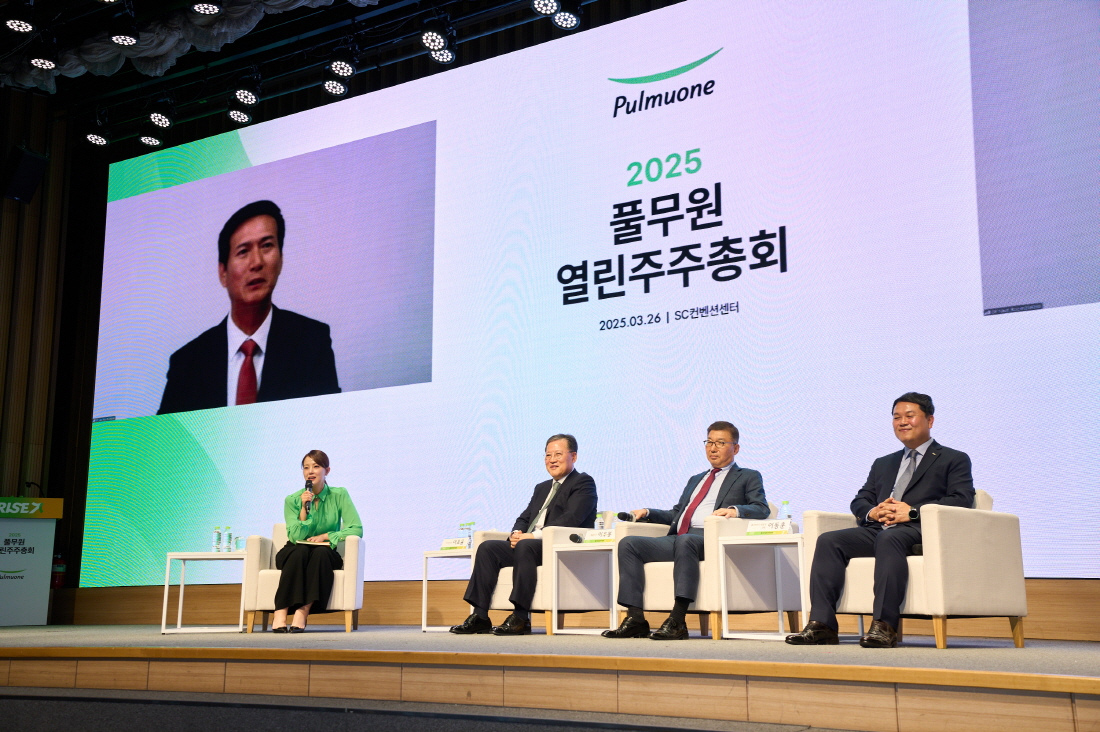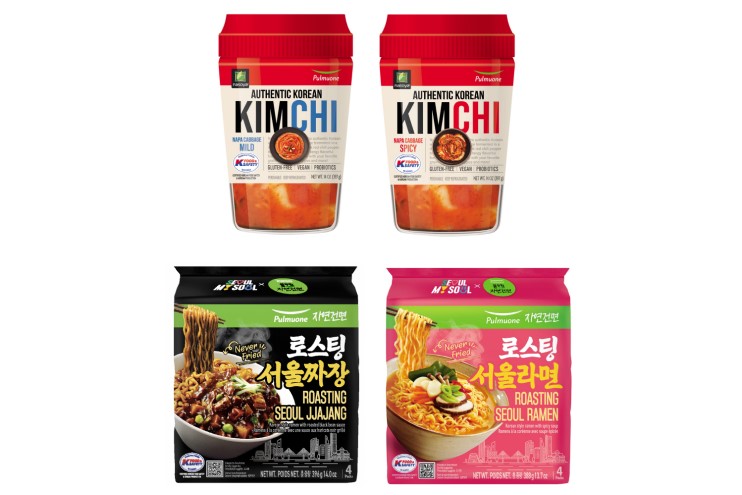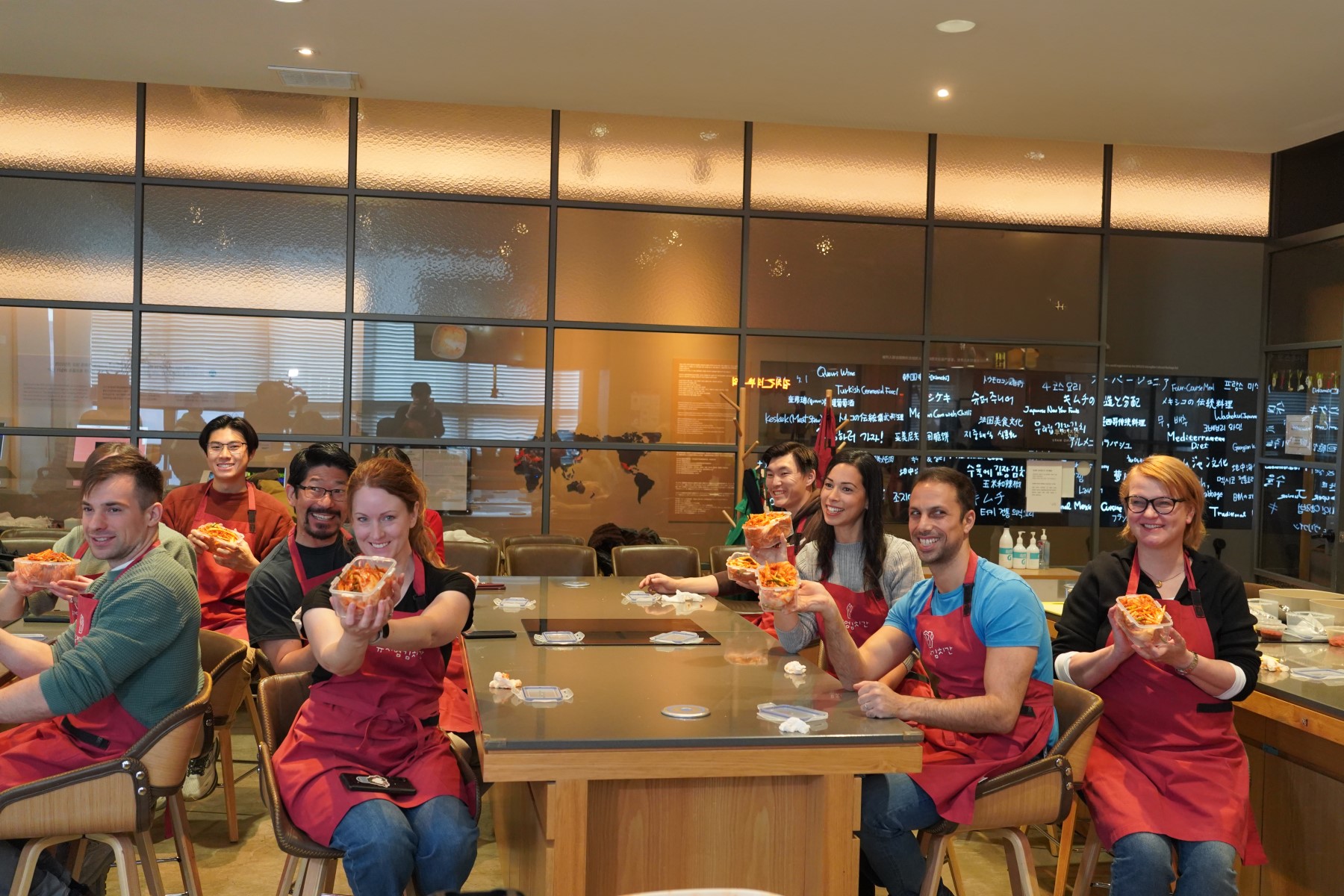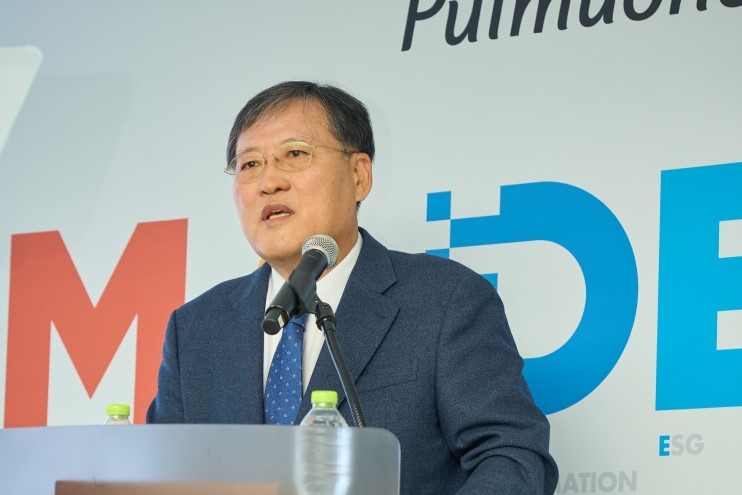- About Us
- Sustainability Management
- Wholesome Foods & LOHAS
- Newsroom
- Press Releases
- 2020.05.22
◦ Pulmuone completed construction of its cutting-edge $32M R&D center in a designated zone of Osong Biopolis District in North Chungcheong Province, Korea
◦ The institute was awarded GOLD status by LEED for the 1st time in the country as a food research facility with high scores in energy and water efficiency
◦ The institute, Pulmuone’s representative eco-friendly facility, is the company’s 2nd green building next to the Passive House of its LOHAS Academy
◦ The institute, is Pulmuone’s headquarters for development of new products for global markets, manufacturing technologies, food safety systems and quality control management
SEOUL – May 22nd, 2020 – Pulmuone, a market leader in the fresh food category in South Korea, completed the construction of Pulmuone Institute of Technology, the nation’s first LEED-certified R&D center, taking a further step towards a global LOHAS business.
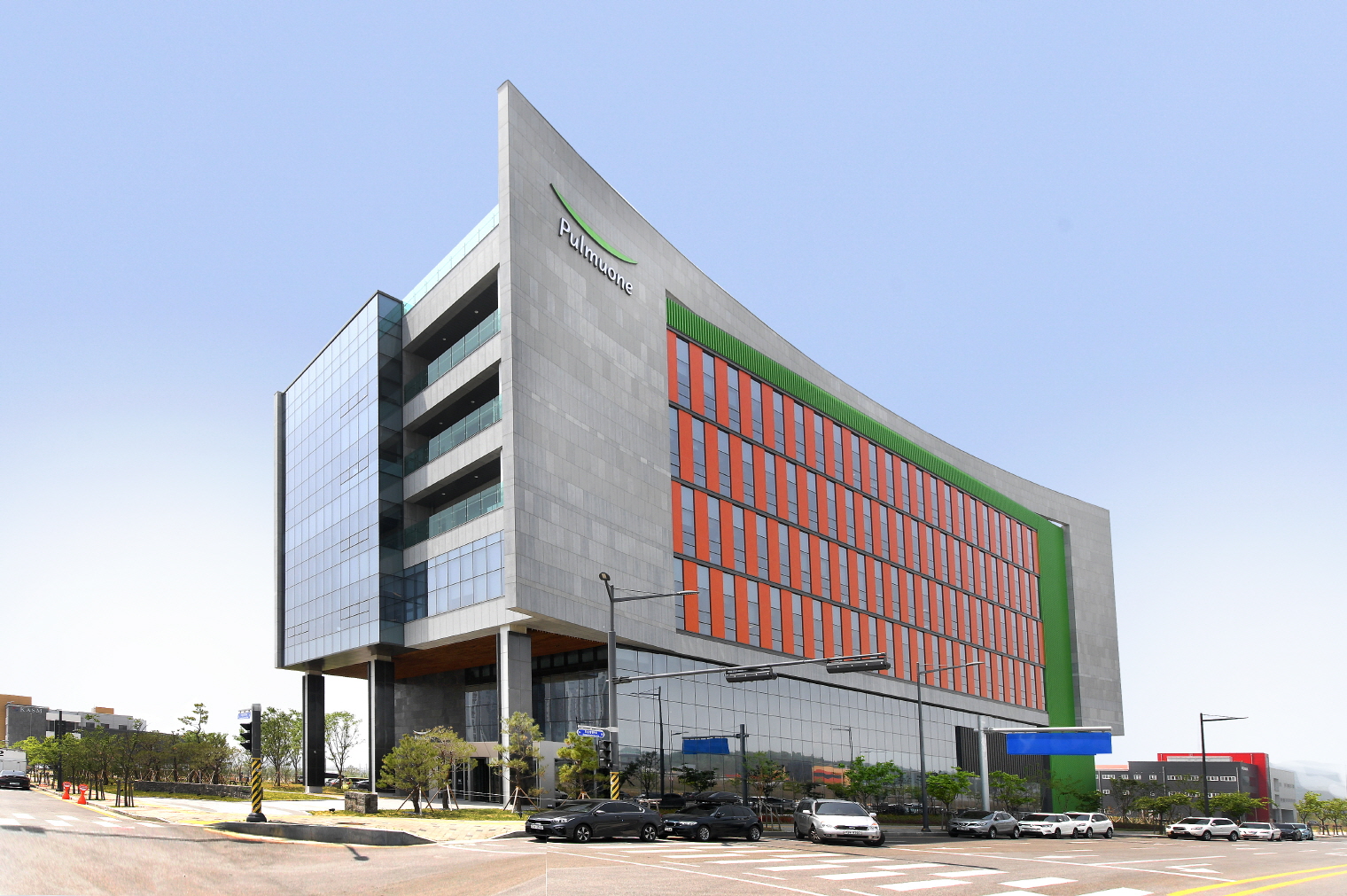
▲ Exterior view of Pulmuone Institute of Technology: Pulmuone Institute of Technology, the new R&D center of Pulmuone, is granted LEED Gold for the first time among the nation’s food research facilities.
Pulmuone announced on 22nd that Pulmuone Institute of Technology, a headquarters for its research and development located in the designated zone of Osong Biopolis in the North Chungcheong Province of the Republic of Korea, received LEED Gold certification. The Gold level is the second-highest rating possible under LEED v4.1 behind only the Platinum.
The institute is the nation’s first LEED-certified food research facility and the most highly rated LEED building among the entire research facilities in the country.
Developed by the U.S. Green Building Council, LEED(Leadership in Energy and Environmental Design) is one the most widely used green building rating systems, along with BREEAM in the UK and CASBEE in Japan.
Overall, 156 domestic buildings, including Lotte World Tower, Namsan Square and Gangnam Finance Center, are LEED-certified, and among them are the R&D centers of Hankook Tire and Kolon Group.
Pulmuone Institute of Technology is the company’s 2nd building to be rated green, following the LOHAS academy which received certification from Passive House Institute. Completed in 2013, the Academy has been awarded preliminary and final certification by the German certifier for the first time in the country. A passive house is an ultra-low energy building with high levels of airtightness, saving 80 to 90 percent of energy compared to existing structures.
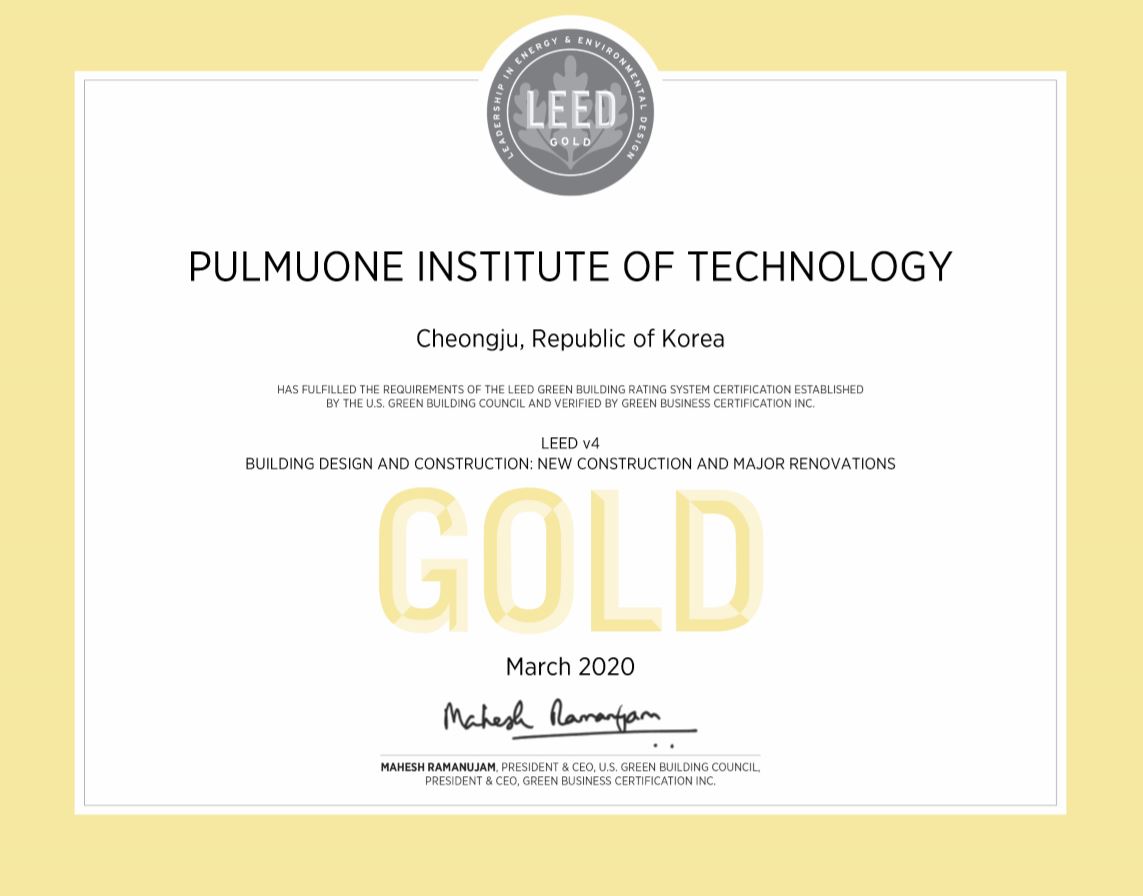
▲ LEED Certificate for Pulmuone Institute of Technology granted by U.S. Green Building Council.
Under its redefined motto of “a LOHAS(Lifestyles of Health And Sustainability) company with love for humanity and nature,” Pulmuone made a decision to build the new R&D center to be harmonious and environmentally sustainable.
Pulmuone Institute of Technology has achieved LEED Gold certification with 61 out of 110 points. The rating system of USGBC has 8 categories which include location and transportation, sustainable sites, water efficiency, energy and atmosphere, materials and resources, indoor environmental quality, innovation, and regional priority.
Out of 11 points in the water efficiency category, the institute earned 10 points. By adopting integrated water resource management system that reduces water use by 71% by recycling rainwater for toilet flushing and landscape irrigation and using water saving taps and toilets.
In the category of energy and atmosphere, the institute achieved 19 out of 33 points. The rooftop solar thermal collectors account for 5 percent of the entire electricity use of the building, and 70 percent of the electricity for lighting is generated from solar power. Using geothermal and ice-thermal energy storage for cooling and heating, the building saves 20 percent of electricity use compared to LEED standards, which led to reducing carbon dioxide emission by 20 percent as well.
Pulmuone Institute of Technology also boasts its indoor air quality achieved in an eco-friendly way. Its air-conditioning system controls temperature, humidity and carbon dioxide level of each floor and removes fine dust particles to ventilate the building with clean air. By filtering out 90 percent of ultra-fine particles, the system enables efficient control of fresh air supply and minimizes the impacts from surroundings.
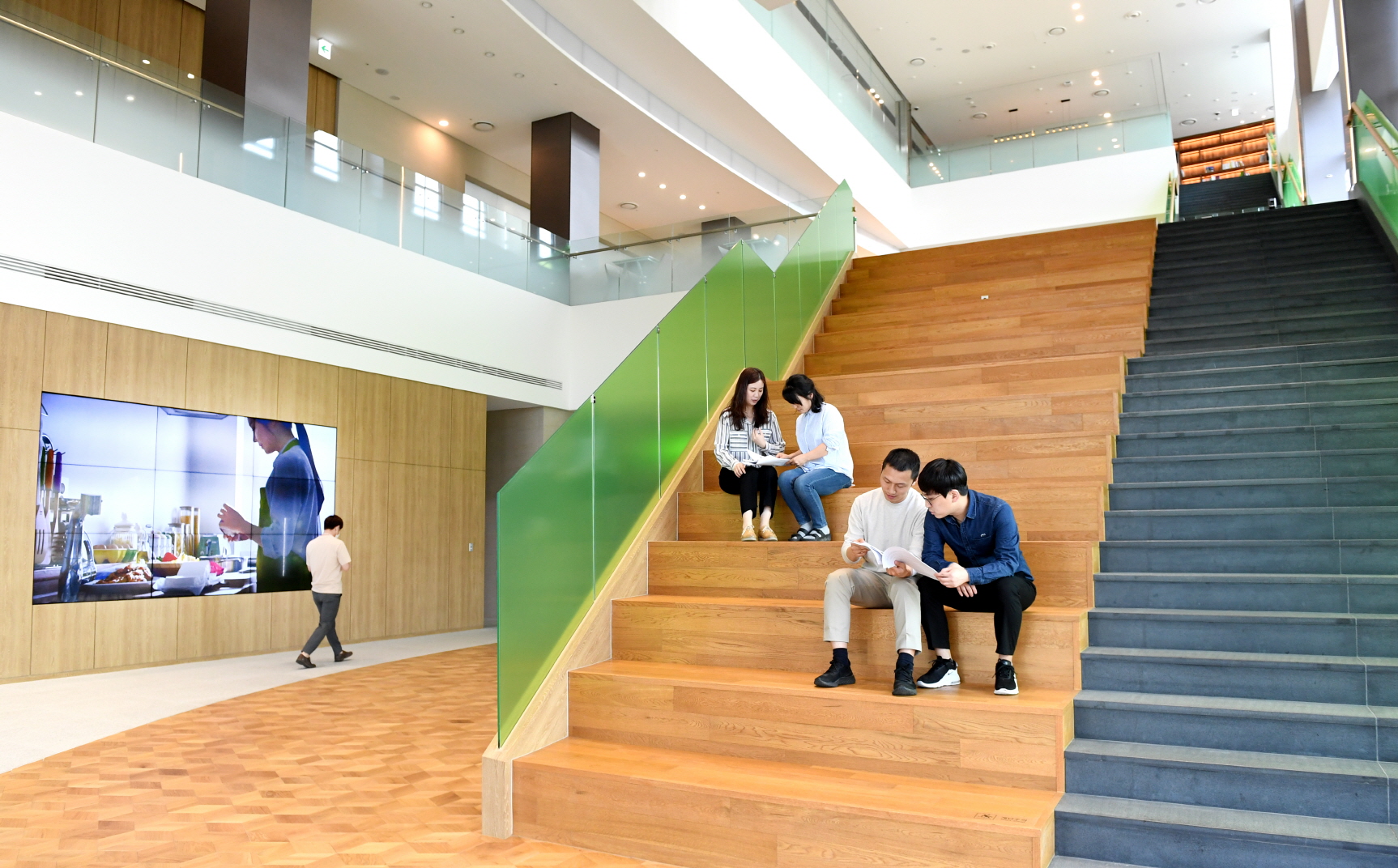
▲ Interior view of Pulmuone Institute of Technology: Pulmuone Institute of Technology was built as an eco-friendly building to contribute to sustainable and harmonious coexistence of environment and ecosystem.
The location and transportation of the building are also eco-friendly designed. Parking spaces are minimized to reduce the environmental harms, and designated areas for electronic car parking and bicycle storage are prepared. The building is surrounded with vegetated areas, and the rooftop garden at the 3rd floor offers a resting place for people and plants. Eco-friendly materials that meet building regulations were used and the sizes of windows maximize nature lighting penetration. Indoor and outdoor lighting are equipped with energy saving devices.
▲ Pulmuone Institute of Technology received high marks in the energy and atmosphere category of LEED rating system. The rooftop solar thermal collectors account for 5 percent of the entire electricity use of the building.
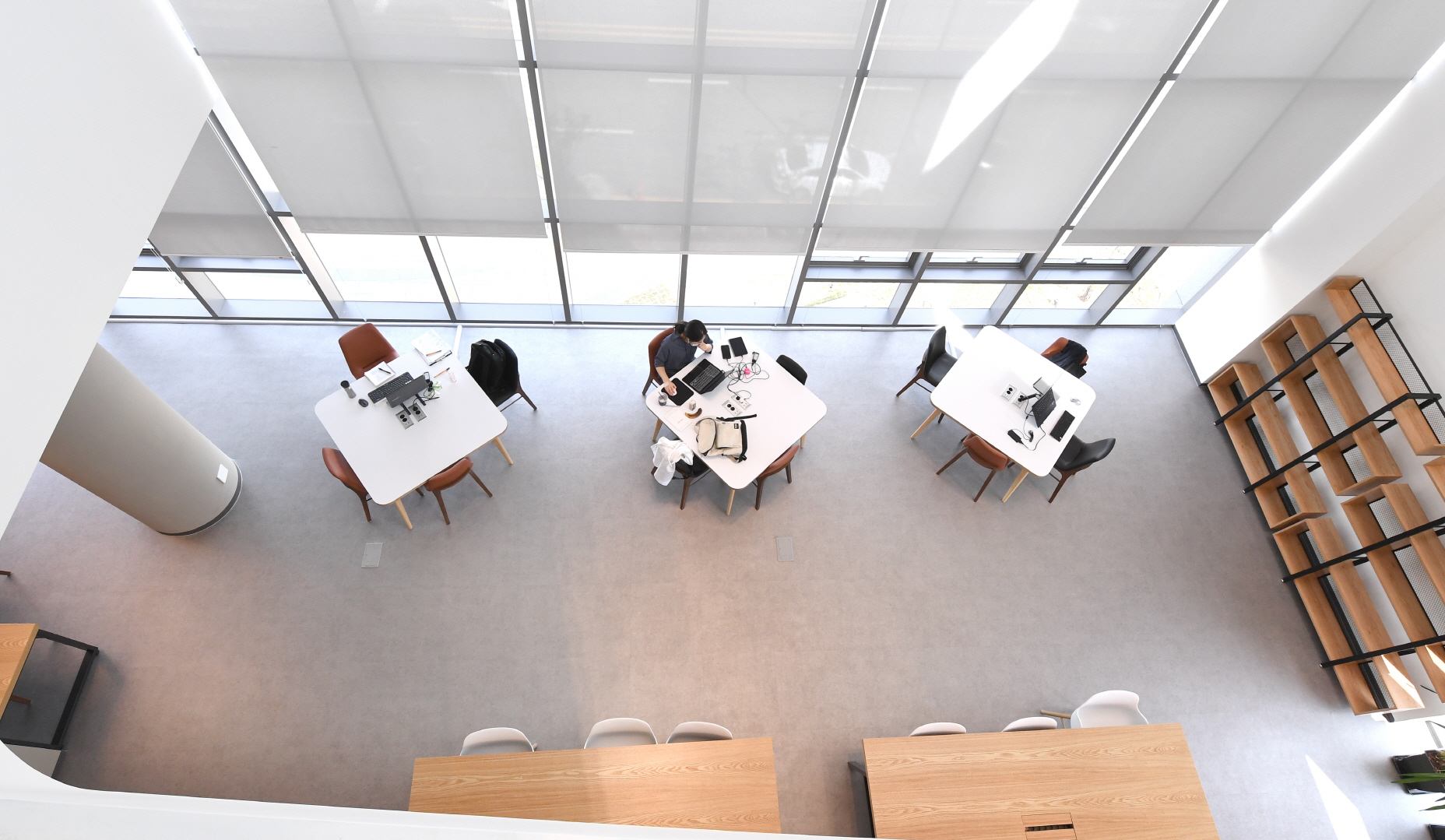
▲ Windows of Pulmuone Institute of Technology are designed for maximum nature light penetration. A flexible seating system is in place to provide researchers with free and comfortable environment.
Pulmuone Institute of Technology was first established as the Pulmuone Foods Research and Development Office in 1985, the early days of the company’s foundation. The institute moved to a building in Yonsei University located in Sinchon, Seoul in 1999 and operated for more than 20 years before the completion of the new R&D center in Osong. Leveraging the high infrastructure and geographical advantages of Osong, Pulmuone is expecting the institute to play a key role in future research and development through sophisticated research capabilities and synergy with its nearby manufacturing and logistics centers.
The construction of Pulmuone Tehchnology Institute, a 12,446 square meter building with 5 floors above ground and 1 underground, began in September 2018 with a budget of over $32M, and more than 200 researchers and employees are working in the place currently. With the completion of the institute, Pulmuone bolstered its food safety and quality control units and created specialized units for eco-friendly building management.
“Pulmuone Institute of Technology, which conveys LOHAS values pursued by Pulmuone, was built as an environmentally friendly building to represent its vision for sustainable development of our future generations,” said Sang-yun Lee, Chief Technology Officer of Pulmuone. “With the research talent nurtured at our best facility, Pulmuone will spur its efforts to develop new products for global markets and strengthen research capabilities to provide its consumers with safe and sustainable foods.”
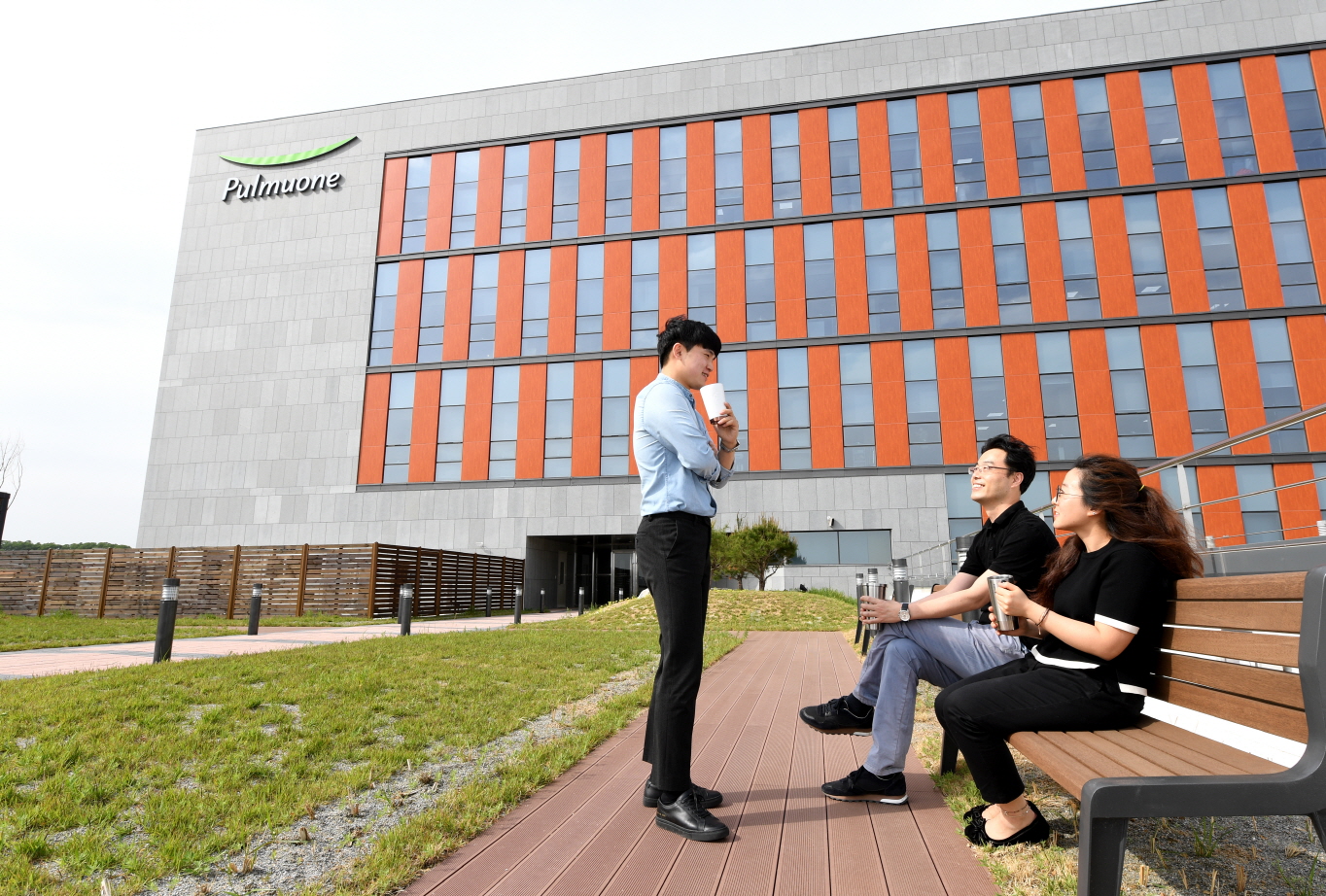
▲ Researchers are relaxing in the rooftop garden of Pulmuone Institute of Technology: The location and transportation of the building are also eco-friendly designed. The rooftop garden at the 3rd floor offers a resting place for people and plants.
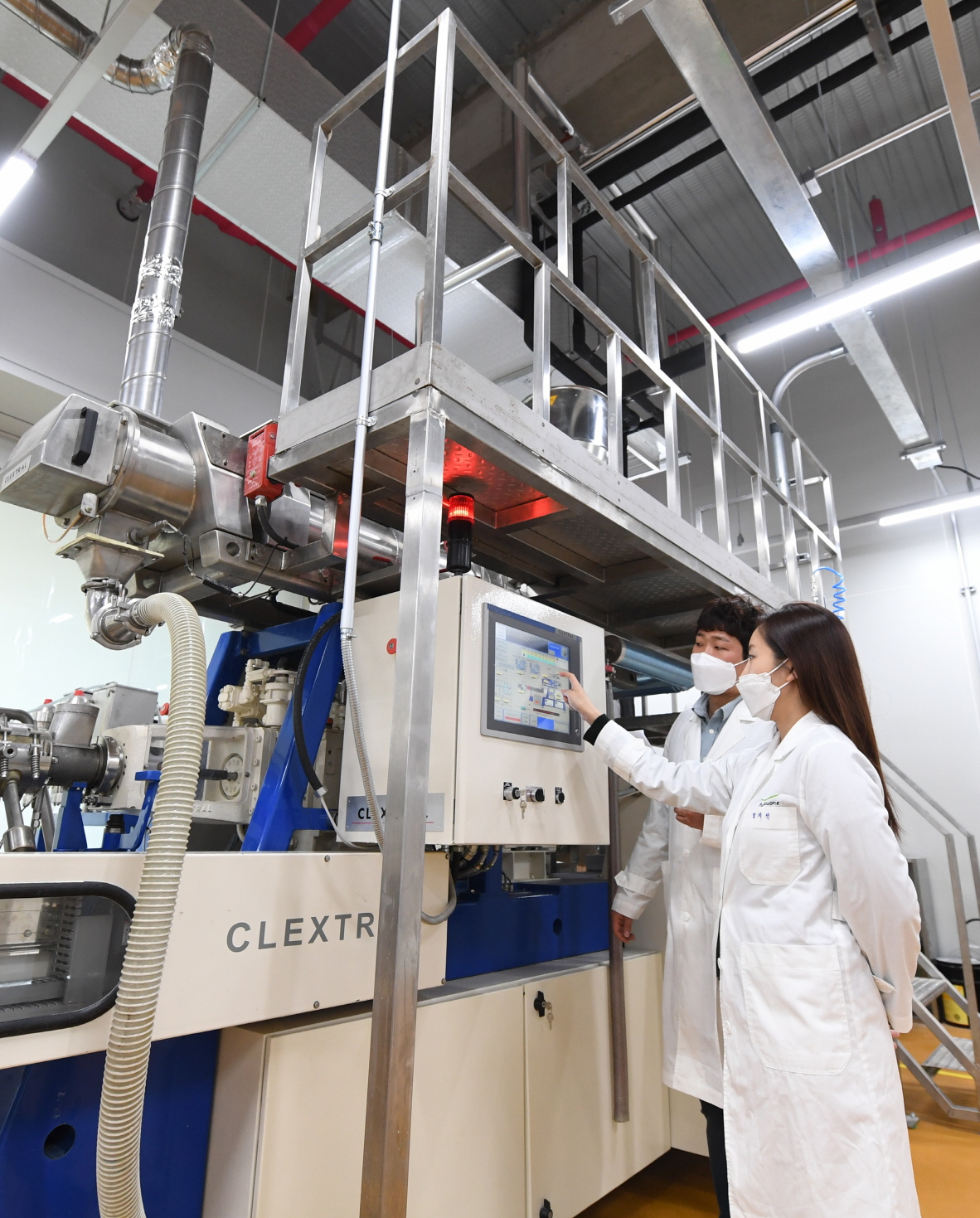
▲ The Pilot Plant, a small-sized manufacturing facility that prototypes and tests HMR(Home Meal Replacement) products in a prompt and flexible way, is the core part of Pulmuone Institute of Technology. Researchers are examining and activating facilities in the Pilot Plant for prototype development.
About Pulmuone Co., Ltd.
Pulmuone, Korea’s leading company for wholesome foods, conducts business in a wide variety of areas, including functional foods, meal services, concession businesses, whole food distribution, mineral water, and fermented milk.
Pulmuone first entered overseas markets in 1991 by establishing a subsidiary in the U.S. Now with additional subsidiaries in China and Japan, and as an owner of U.S.’s #1 tofu brand Nasoya, the company is growing into a global enterprise.








